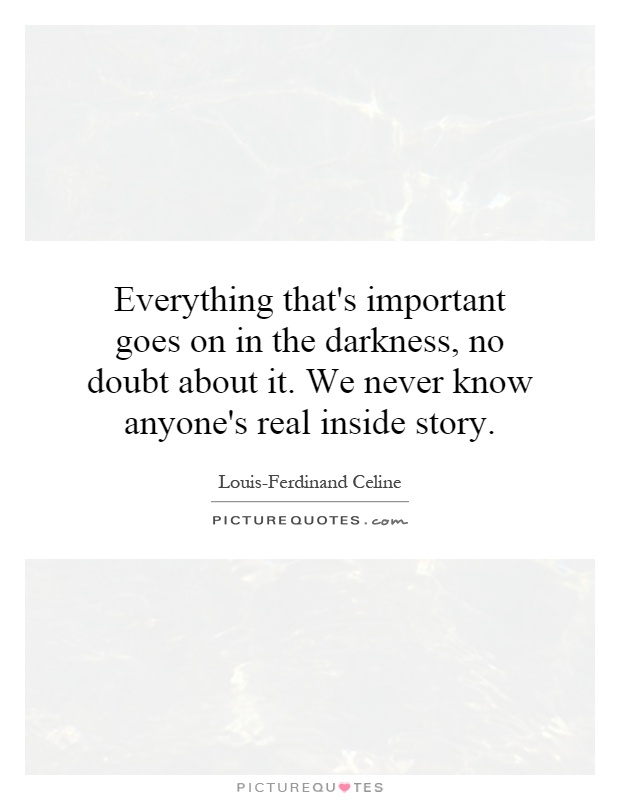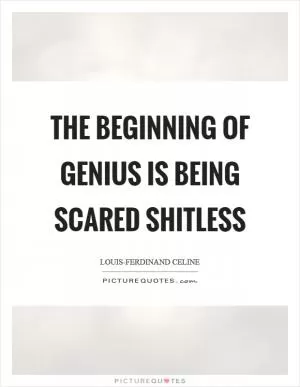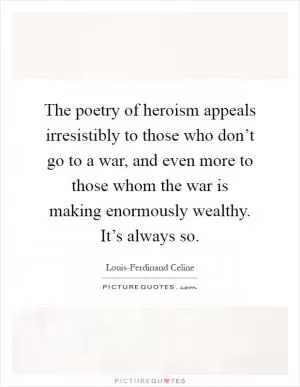Everything that's important goes on in the darkness, no doubt about it. We never know anyone's real inside story

Everything that's important goes on in the darkness, no doubt about it. We never know anyone's real inside story
Louis-Ferdinand Celine, a French writer known for his controversial and provocative works, often delved into the darker aspects of human nature and society. His writing style was raw, gritty, and unapologetically honest, shining a light on the hidden truths and complexities that lie beneath the surface. In many ways, Celine's work embodies the sentiment that "everything that's important goes on in the darkness, no doubt about it. We never know anyone's real inside story."Celine's most famous work, "Journey to the End of the Night," is a prime example of his exploration of the darkness within humanity. The novel follows the protagonist, Ferdinand Bardamu, as he navigates through the chaos and brutality of World War I, colonial Africa, and the streets of Paris. Through Bardamu's eyes, Celine exposes the harsh realities of war, poverty, and existential despair, painting a bleak and unflinching portrait of the human condition.
In Celine's world, the darkness is not just a physical absence of light, but a metaphor for the hidden depths of human experience. It is in the darkness that our true selves are revealed, stripped of the masks and facades we present to the world. Celine's characters are often flawed, damaged, and morally ambiguous, reflecting the complexity and contradictions of human nature.
Celine himself was a controversial figure, known for his anti-Semitic views and support of fascism. His personal life was marked by scandal and controversy, further blurring the lines between the man and his work. Like his characters, Celine's true self remains elusive and enigmatic, hidden behind a veil of darkness and ambiguity.












 Friendship Quotes
Friendship Quotes Love Quotes
Love Quotes Life Quotes
Life Quotes Funny Quotes
Funny Quotes Motivational Quotes
Motivational Quotes Inspirational Quotes
Inspirational Quotes